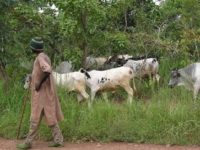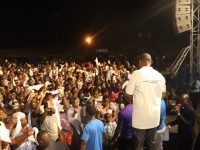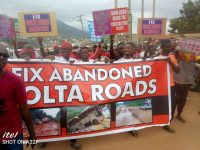As a health professional who has had the opportunity of training and working with Ghanaians of different backgrounds over the years typically in the Hospital setting, I have observed with increasing concern our inclination towards hospital based curative care and the concentration of resources thereof to curative health to the neglect of preventive health, the core idea behind the promulgation of the Primary Health Care concept. Indeed, the PHC policy is so detailed and expansive, that if followed correctly many of our rural areas who at the moment have practically no direct access to health care would be better off. Of course it is one thing writing policy documents, and it is another following them to the letter.
The very critical nature in which patients from the deprived areas were brought to the hospitals in which I worked, the frequency of deaths from preventable causes, the outcomes of surveys we had conducted which showed high rates of maternal and infant mortalities of people from these rural areas and the tales of how difficult it is for them to access healthcare motivated me to do more. I am not a celebrity who can get thousands of people following me with a simple twitter message of lack of health services to our rural folk, I am an ordinary Ghanaian with a vision, that somehow, our brothers and sisters, friends, cousins, distant relatives in very deprived villages still deserve good health options, or at least have the fundamental right of being healthy. It is this goal that led me to recruit like-minded friends to start the Health Support Foundation, which is aimed at extending basic health care to these areas on periodic basis and offering support, follow ups, community mobilization for self-help and other humanitarian services that are all contained in the definition of health.
One of the many villages we have visited, and whose story I want to share with you is Adorfe. A small farming community in the Ho West District of the Volta Region. This amazing village is located on the Weto Ranges, with no real access road other than a little footpath. It took the team about 3 hours of intense hiking up the mountains from the nearest Village of Ashianti Kpoeta amidst torrential rains which caught us halfway through the journey. Adorfe has no access to electricity or potable water, the community has just a 3 compartment uncompleted school building for their primary school, hence 2 classes are paired in one room. There is no Junior High School, so those parents who insist their children must attend JHS either must either have these children trek for hours down the mountains to school and back or send them to school at the other side of the mountain, the Republic of Togo. One can only imagine. There is only a small stream that serves the village with water for drinking apart from harvested rain water. This stream was green with algae, with toads singing their chorus as children drank from the only calabash perpetually floating on the greenish water as we watched in shock.
A closer look at the source of drinking water for the people of Adorfe.
You would have thought a village as impoverished as Adorfe would have virtually nothing there, well you would have been very wrong. These people cultivate cocoa and coffee quite remarkably. They also have other food crops and negroe pepper, locally referred to as “etso”. Sadly, a source informed us they are unable to cart their produce to Ghana, hence they are usually sold cheaply to Togolese merchants. This village owing to neglect is thus not contributing the total complement of its economic might to the Ghanaian economy. We met many French speaking Ghanaians, who due to lack of access had to trek to Togo in order to have post primary school education, needless to say, there’s hardly any progress after struggling through JHS.
We had a dynamic team of health and allied professionals, stayed with these marvelous people for 3 days to offer them medical support and humanitarian help. We went round to assess their peculiar situation and listen to their stories. We had good sessions of focus group discussions, public education, home visits, screening for common ailments, referral of sick people to the clinic, biomedical services and counselling. We found individuals with very high sugar levels who never knew they were diabetic in the first place as well as many children with various degrees of medical problems especially malaria, typhoid fever and nutritional deficiencies. We learnt that when a person was critically ill and had to go to the clinic at all cost, the fellow is tied to a make shift couch and carried on the head by four willing young men as a chief is carried in a palanquin down mountains to Ashianti Kpoeta to seek health care. Pregnant women almost always deliver at home, many a baby end up being lost to complications, ditto for mothers.
We have established a small project aimed at intervening positively in the lives of these people by attempting to dig a well and provide simple water filters for the homes in Adorfe, whilst keeping a constant schedule of support visits and follow ups to consolidate our gains at preventing diseases and keeping these people safe. There’s a lot more to be done, but a step at a time am sure will get us there.
Donation of household items to the people of Adorfe.
This is just one of several stories of the plight of ordinary citizens of Ghana we encounter on our health seeking adventures. There are many more that we all should be concerned about. Dumsor is a big problem, but it is not the only problem, at least there is a “sor” to our “dum”, let’s not forget those who have only “dum”. I wish to by this article draw attention to the plight of our peoples in the very remote areas, over the banks, on top of the mountains, down the valleys, they are people too, with similar needs as us, they have health needs too, and usually get their interventions a bit too late. Let’s not forget our country goes beyond Accra and the urban areas, and health delivery goes beyond NHIS and CHPS zones. We should put in place a deliberate effort at progressively assisting these people so the totality of their productivity will augment the national economy. Non-governmental bodies should focus more attention on these areas. We are happier when we are all relatively fine. Let us all be concerned because our lives are intertwined. Remember the words of poet Martin Niemoller (1892-1984) a reaction to the cowardice of German intellectuals: “First they came for the socialists and I did not speak out, because I was not a socialist. Then they came for the Trade Unionists, and I did not speak out because I was not a trade Unionist. Then they came for the Jews, and I did not speak out because I was not a Jew. Then they came for me, and there was no one left to speak for me.”
James Mawuli Gawu
The writer is the Founder & President of Health Support Foundation.
Accra.
efogawu@yahoo.com







Thanks James for the yeoman’s job you are doing for for the people of Adorfe. Your vivid description of the situation in Adorfe cannot be anything but the real truth. I come from Kpoeta and know what you are talking about. May the good Lord grant us the grace to be able to be of some real help. God bless you and your team.
Congrats more power to your elbow
I really appreciate ur effort sir may God richly bless you.